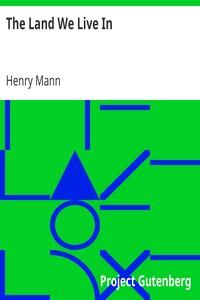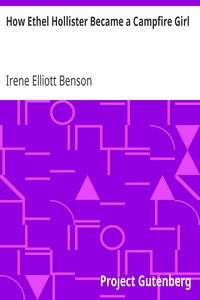|
|
Read this ebook for free! No credit card needed, absolutely nothing to pay.Words: 82106 in 40 pages
This is an ebook sharing website. You can read the uploaded ebooks for free here. No credit cards needed, nothing to pay. If you want to own a digital copy of the ebook, or want to read offline with your favorite ebook-reader, then you can choose to buy and download the ebook.

: The Cross-Cut by Cooper Courtney Ryley Gage George W Illustrator - Mines and mineral resources Colorado Fiction Western@FreeBooksTue 06 Jun, 2023 THE HISTORY OF TRADE UNIONISM THE HISTORY OF TRADE UNIONISM: BY SIDNEY AND BEATRICE WEBB . LONGMANS, GREEN AND CO. 39 PATERNOSTER ROW, LONDON FOURTH AVENUE & 30TH STREET, NEW YORK BOMBAY, CALCUTTA, AND MADRAS 1920 INTRODUCTION TO THE EDITION OF 1920 The thirty years that have elapsed since 1890, down to which date we brought the first edition of this book, have been momentous in the history of British Trade Unionism. The Trade Union Movement, which then included scarcely 20 per cent of the adult male manual-working wage-earners, now includes over 60 per cent. Its legal and constitutional status, which was then indefinite and precarious, has now been explicitly defined and embodied in precise and absolutely expressed statutes. Its internal organisation has been, in many cases, officially adopted as part of the machinery of public administration. Most important of all, it has equipped itself with an entirely new political organisation, extending throughout the whole of Great Britain, inspired by large ideas embodied in a comprehensive programme of Social Reconstruction, which has already achieved the position of "His Majesty's Opposition," and now makes a bid for that of "His Majesty's Government." So great an advance within a single generation makes the historical account of Trade Union development down to 1920 equivalent to a new book. We have taken the opportunity to revise, and at some points to amplify, our description of the origin and early struggles of Trade Unionism in this country. We have naturally examined the new material that has been made accessible during the past quarter of a century, in order to incorporate in our work whatever has thus been added to public knowledge. But we have not found it necessary to make any but trifling changes in our original interpretation of the historical development. The Home Office papers are now available in the Public Record Office for the troubled period at the beginning of the nineteenth century; and these, together with the researches of Professor George Unwin, Mr. and Mrs. Hammond, Professor Graham Wallas, Mr. Mark Hovell, and Mr. M. Beer, have enabled us both to verify and to amplify our statements at certain points. For the recent history of Trade Unionism we have found most useful the collections and knowledge of the Labour Research Department, established in 1913; and we gratefully acknowledge the assistance in facts, suggestions, and criticisms that we have had from Mr. G. D. H. Cole and Mr. R. Page Arnot. We owe thanks, also, to Miss Ivy Schmidt for unwearied assistance in research. SIDNEY and BEATRICE WEBB. PREFACE TO THE ORIGINAL EDITION OF 1894 It is not our intention to delay the reader here by a conventional preface. As every one knows, the preface is never written until the story is finished; and this story will not be finished in our time, or for many generations after us. A word or two as to our method of work and its results is all that we need say before getting to our main business. Though we undertook the study of the Trade Union movement, not to prove any proposition of our own, but to discover what problems it had to present to us, our minds were not so blank on the subject that we had no preconception of the character of these problems. We thought they would almost certainly be economic, pointing a common economic moral; and that expectation still seems to us so natural, that if it had been fulfilled we should have accepted its fulfilment without comment. But it was not so. Our researches were no sooner fairly in hand than we began to discover that the effects of Trade Unionism upon the conditions of labour, and upon industrial organisation and progress, are so governed by the infinite technical variety of our productive processes, that they vary from industry to industry and even from trade to trade; and the economic moral varies with them. Where we expected to find an economic thread for a treatise, we found a spider's web; and from that moment we recognised that what we had first to write was not a treatise, but a history. And we saw that even a history would be impossible to follow unless we separated the general history of the whole movement from the particular histories of thousands of trade societies, some of which have maintained a continuous existence from the last century, whilst others have cropped up, run their brief course, and disappeared. Thus, when we had finished our labour of investigating the records of practically every important trade society from one end of the kingdom to the other, and accumulated piles of extracts, classified under endless trades and subdivisions of trades, we found that we must exclude from the first volume all but a small selection from those documents which appeared to us most significant with regard to the development of the general movement. Many famous strikes and lock-outs, many interesting trade disputes, many sensational prosecutions, and some furious outbursts of riot and crime, together with many drier matters relating to particular trades, have had either to be altogether omitted from our narrative, or else accorded a strictly subordinate reference in their relation to the history of Trade Unionism as a whole. All analysis of the economic effects of Trade Union action we reserve for a subsequent volume on the Problems of Trade Unionism, for which we shall draw more fully from the annals of the separate unions. And in that volume the most exacting seeker for economic morals will be more than satisfied; for there will be almost as many economic morals drawn as societies described. But the greater part of our material, especially that relating to the present century, has come from the Trade Unionists themselves. The offices of the older unions contain interesting archives, sometimes reaching back to the eighteenth century--minute-books in which generations of diligent, if unlettered, secretaries, the true historians of a great movement, have struggled to record the doings of their committees, and files of Trade Union periodicals, ignored even by the British Museum, through which the plans and aspirations of ardent working-class politicians and administrators have been expounded month by month to the scattered branches of their organisations. We were assured at the outset of our investigation that no outsider would be allowed access to the inner history of some of the old-fashioned societies. But we have found this prevalent impression as to the jealous secrecy of the Trade Unions without justification. The secretaries of old branches or ancient local societies have rummaged for us their archaic chests with three locks, dating from the eighteenth century. The surviving leaders of a bygone Trade Unionism have ransacked their drawers to find for our use the rules and minutes of their long-forgotten societies. In many a working man's home in London and Liverpool, Newcastle and Dublin--above all, in Glasgow and Manchester--the descendants of the old skilled handicraftsmen have unearthed "grandfather's indentures," or "father's old card," or a tattered set oever. A longer statement full of figures, of diagrams and surveyor's calculations which Fairchild could neither decipher nor understand, gave the location, the town site and the property included within the granted rights. It was something for an attorney, such as Beamish, to interpret, and Fairchild reached for the age-yellowed envelope to return the papers to their resting place. But he checked his motion involuntarily and for a moment held the envelope before him, staring at it with wide eyes. Then, as though to free by the stronger light of the window the haunting thing which faced him, he rose and hurried across the room, to better light, only to find it had not been imagination; the words still were before him, a sentence written in faint, faded ink proclaiming the contents to be "Papers relating to the Blue Poppy Mine", and written across this a word in the bolder, harsher strokes of a man under stress of emotion, a word which held the eyes of Robert Fairchild fixed and staring, a word which spelled books of the past and evil threats of the future, the single, ominous word: "Accursed!" Free books android app tbrJar TBR JAR Read Free books online gutenberg More posts by @FreeBooks
: Journeys to Bagdad by Brooks Charles S Charles Stephen Lewis Allen Illustrator - Essays@FreeBooksTue 06 Jun, 2023

: Opere Volume Secondo : scritti critici e letterari by Berchet Giovanni Bellorini Egidio Editor - Italian literature History and criticism IT Letteratura@FreeBooksTue 06 Jun, 2023
|
Terms of Use Stock Market News! © gutenberg.org.in2025 All Rights reserved.






